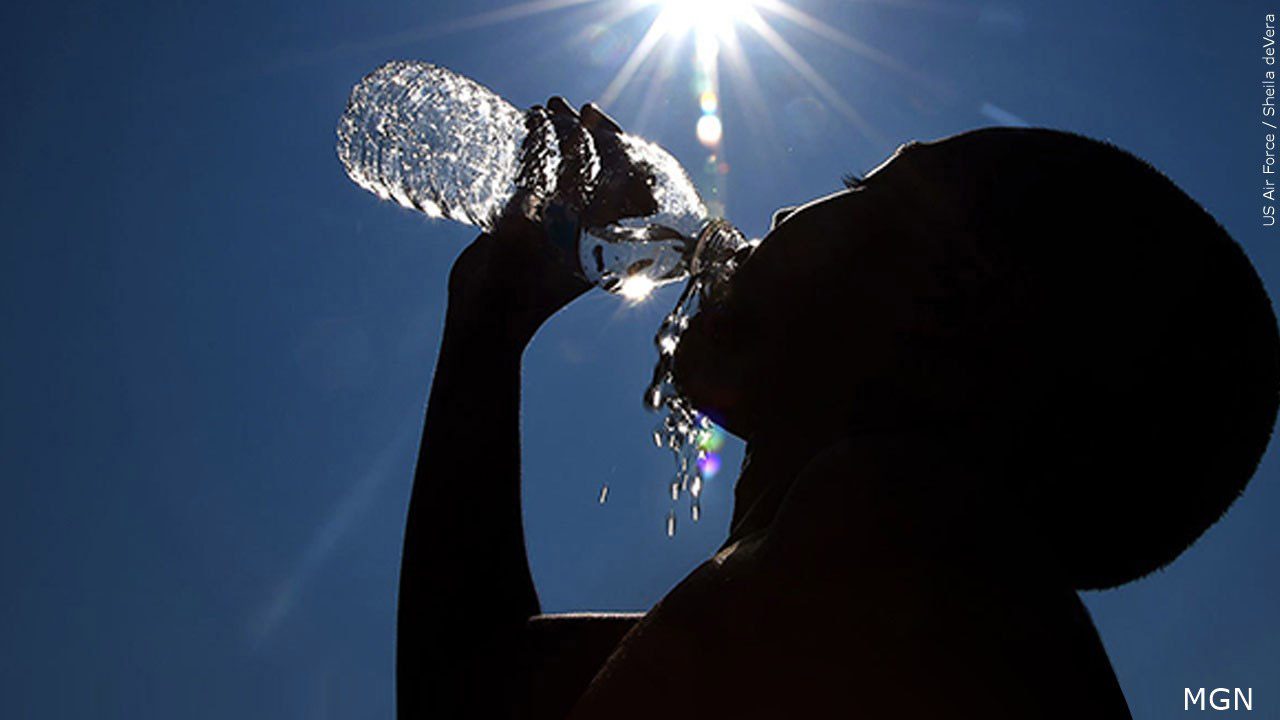Why a 90° day here, feels so much worse
[anvplayer video=”5186572″ station=”998130″]
WDIO’s Renee Passal and Dr. Dylan Wyatt sat down to discuss why a 90° day feels so much worse for people living in Minnesota and Wisconsin. Dr. Dylan, an emergency medicine physician at St. Luke’s is a frequent guest on WDIO News.
According to Dr. Dylan, the hot temperatures feel different depending on where we live and what we are used to. We all know someone from Arizona who would be outside relaxing in temperatures that someone living in Minnesota or Wisconsin would find unbearable.
“It’s because their bodies can adapt to that temperature,” Dr. Dylan says. “Usually the body adapts by increasing the amount of sweat that it’s producing. And the frequency and sort of how quickly it starts producing that sweat.”
Dr. Dylan says these warm temperatures feel worse to someone in the Northland because our bodies have not adapted because the extreme heat builds suddenly, and usually does not last for an extended period.
“It takes around a week for people to become fully used to those temperatures,” Dr. Dylan said. ” So these heat spikes that we can get for a day or two where the temperature comes up are actually a lot more dangerous than a slow climb up to a potentially even a higher temperature.” He says the slower rate would allow our bodies to get used to the heat.

Heat can be dangerous for young children and older adults.
RELATED STORY: What are the heat-related illnesses?
“It all comes back to the sweating, actually. So for those who are elderly, their sweat glands produce less sweat and they’re more likely to be chronically dehydrated,” Dr. Dylan said.
He says the evaporative cooling, where the sweat actually evaporates off the body and pulls the heat away doesn’t happen with the elderly because there is not as much sweat being produced. This puts the elderly at a higher risk of heat illness.
With kids, their bodies have not fully matured yet, so they do not produce as much sweat. “But they’re also smaller. So there’s a smaller surface area for that evaporative cooling to occur,” he says.
So what should we be doing to prevent having a problem with the heat?
- First and foremost, stay hydrated. “If you are feeling thirsty, remember, you’re already behind, You’re already dehydrated. If you are feeling thirsty.” He says you want to drink liquids and electrolyte beverages because our sweat is also made up of salt.
- Stay out of the heat during the hottest time of the day.
“I know it’s fun to be out there when the sun is high and it’s beautiful out, but it also puts us at the highest risk for heat related injuries and becoming dehydrated.”
RELATED STORY: Tips on how to brace the coming heat wave
If you can schedule things like yard work and more strenuous things like exercise, you should keep it to the morning and evening.
“It can make a huge difference in reducing the amount that you’ll have to take in water wise to keep up with that and just reducing the heat burden that you’re facing.”
- Finally, Dr. Dylan says we should check in on friends, family, and neighbors who may or may not be prepared for the extreme heat.
“We can all kind of work together, you know, take them out to the mall instead of walking on the Lakewalk. That little bit of decreased exposure can make a huge difference,” Dr. Dylan said.